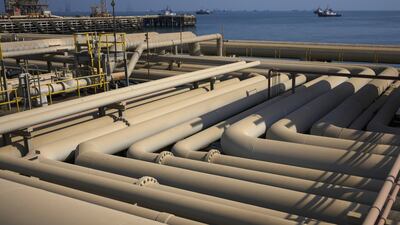Oil prices registered strong weekly gains rising more than 10 per cent amid expectations of reduced production in the US ahead of a storm and due to declining Covid-19 infections in China, the biggest importer of crude.
Brent, the international benchmark, rose 11.5 per cent over the week, while West Texas Intermediate, which tracks US crude grades, gained 10.6 per cent.
Brent rose 2.29 per cent to settle at $72.7 per barrel on Friday, while WTI gained 1.96 per cent to close at $68.74 per barrel.
Prices also climbed on the prospect of a possible decline in demand and closure of offshore oil production facilities in the Gulf of Mexico as tropical storm Ida is set to make landfall.
"Oil prices are on the rise once more, buoyed by improved risk appetite in the markets," Craig Erlam, senior market analyst at Oanda Europe, said.
"Every hurricane is different and brings uncertainty for the region that contributes heavily to US output. Should it pass without major issues then we could see oil paring some of these gains on Monday."
Market sentiment remains positive after China reached zero Covid-19 cases last week. The world's second-biggest economy has taken a stringent approach to contain Covid-19 outbreaks after the virulent delta strain led to a rise in infections across the world.
Oil prices also strengthened on the back of US Federal Reserve chairman Jerome Powell's comments on Friday about the institution's plans for tapering off quantitative easing this year. He stressed the tapering and interest rate hikes were not linked.
The US dollar softened following his comments, which strengthened commodity prices. Crude trades inversely proportional to the dollar. When the dollar gains, crude falls and vice versa.
Oil markets are also increasingly factoring out the potential return of Iranian barrels this year. The delay in reaching a nuclear deal with Tehran makes the country's return to the export markets "unlikely this year", said Mark Haefele, chief investment officer, global wealth management at UBS.
Opec+, the group led by Saudi Arabia and Russia, is also set to meet on September 1 and will consider whether to bring additional supply back to the market.
"Opec and its allies have the flexibility to pause or reverse planned production increases if necessary. As a result, we don’t regard the recent agreement to lift production each month by 400,000 barrels per day as set in stone," Mr Haefele said.
The Swiss bank expects Brent to average $75 per barrel by December, from an average of $70.6.


